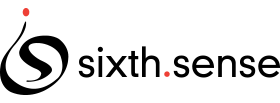
Tackling Year-End Fatigue
As we approach the end of the year, exhaustion can feel inevitable! But what if we used this fatigue as a tool for growth rather than something to endure as we approach the 2024 finish line?
Here are five slightly different ways to turn year-end exhaustion into an opportunity for renewed energy and insight, with practical steps to make each idea actionable:
Reflect, Don’t Just Review
Instead of simply marking tasks as complete, take a moment for meaningful reflection on the year’s journey. Talk about what’s been achieved (or not) with a critical friend or coach, and, most importantly, deposit the wins in your resilience bank by logging them.
In the run-up to Christmas, set aside 20 minutes at the end of the week to jot down three achievements that brought you pride or growth this year. Then, note one lesson from each. For teams, try a 30-minute reflection session to discuss achievements, surprises, and lessons as a group.
Practice “Essentialism”
Adopt an essentialist mindset—do less but with more impact. This will not only help productivity but also relieve pressure. Try radical prioritisation.
Begin each morning by listing three critical tasks that genuinely move the needle forward. Challenge yourself to eliminate or delegate anything that isn’t essential. For team activities, hold a quick prioritisation huddle to realign priorities and redistribute lower-impact tasks. Let go of some crap!
Work With Tiredness
When we’re tired, our mental filters lower, sometimes opening us to new perspectives. We stop being prepared to put up with stuff. Embrace this and see where it takes you.
Set up a proper brainstorming session where you say “and” instead of “but”. Even better, do this over food and/or drink.
Reframe Routine
Turn end-of-year routines into deliberate “rituals” to prepare mentally for the end of the year and the fresh start ahead.
Choose a time of day to tackle one specific task—such as clearing out your inbox or organising digital files—and treat it as a “closing ritual.” Make it enjoyable by adding music or a favourite snack, creating a positive association with wrapping things up. Establish a shared “reset ritual” for teams, such as archiving old projects or collectively updating your team workspace.
Use Fatigue as Feedback
View fatigue not as a weakness but as valuable data about where to set boundaries or adjust for sustainability.
Track the times of day when you feel most drained and consider shifting demanding tasks to your peak energy times. If you are leading a team, you might create an open space for team feedback on workload and stress, focusing on one concrete change that could improve the team’s well-being in 2025.

Start The Discussion